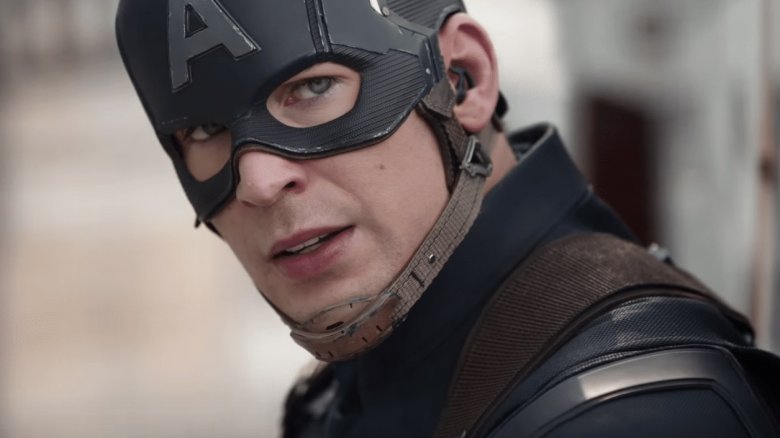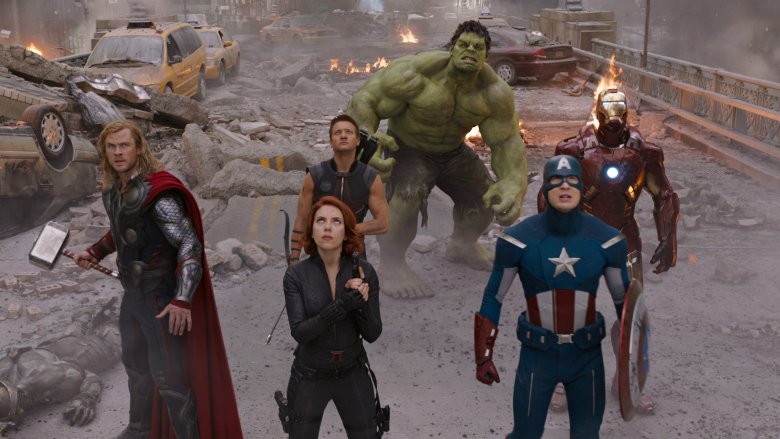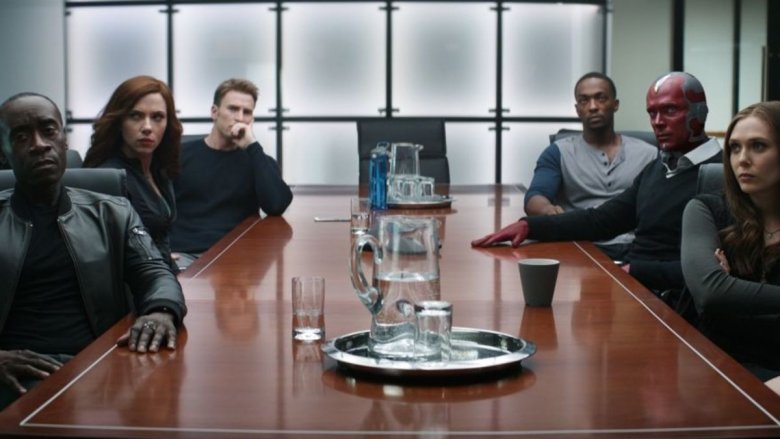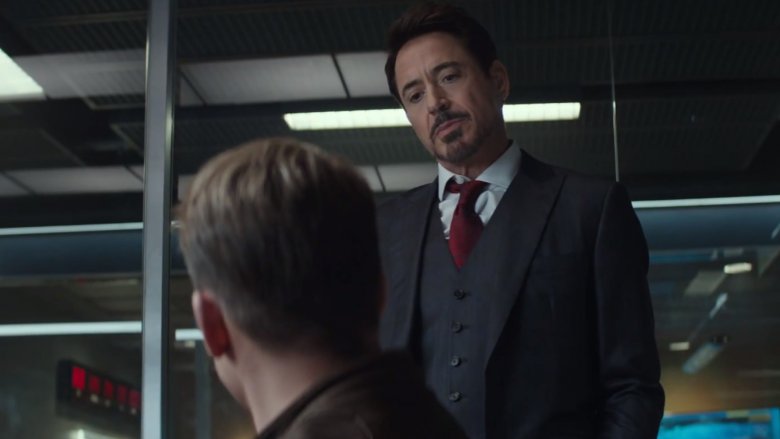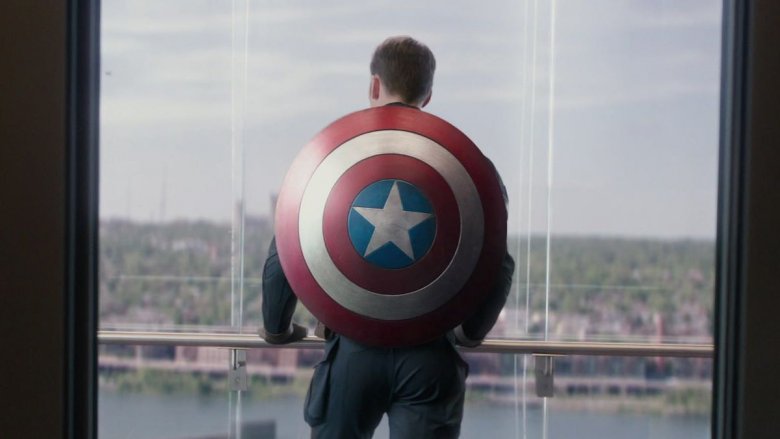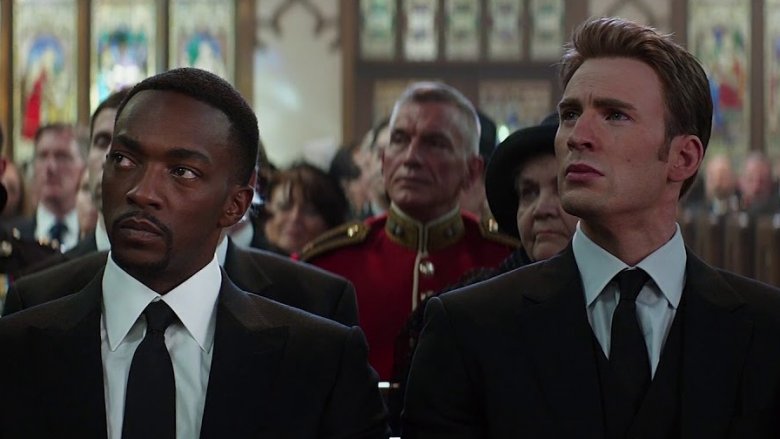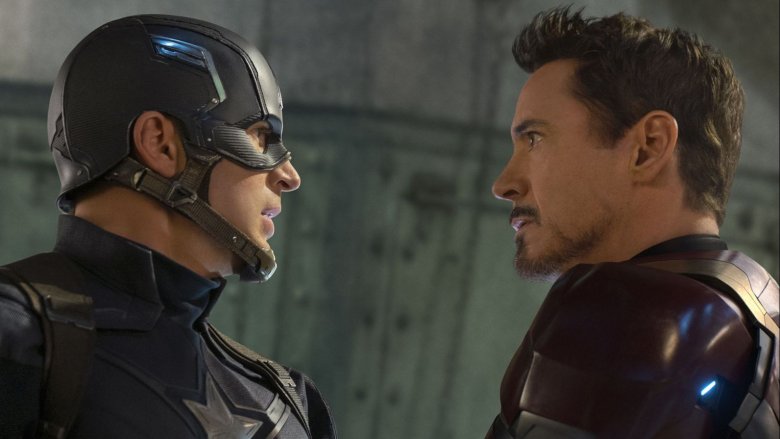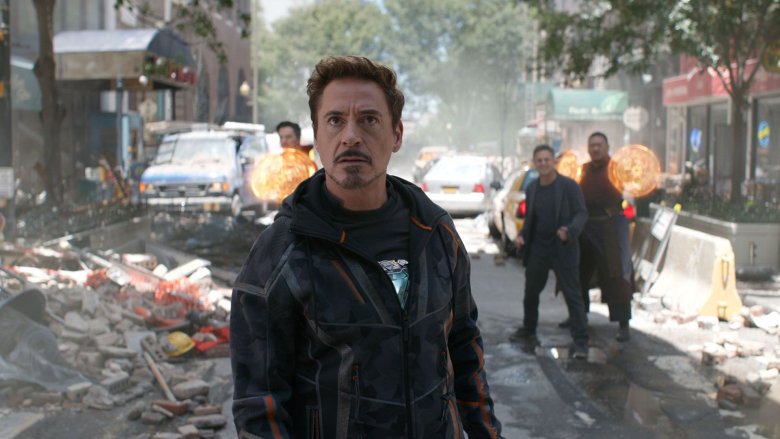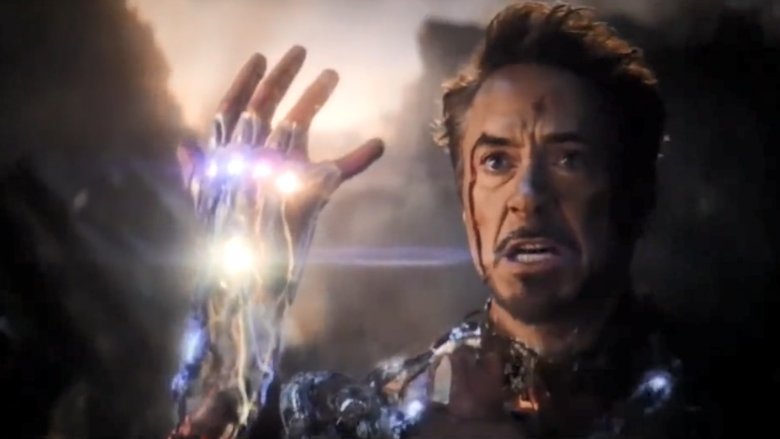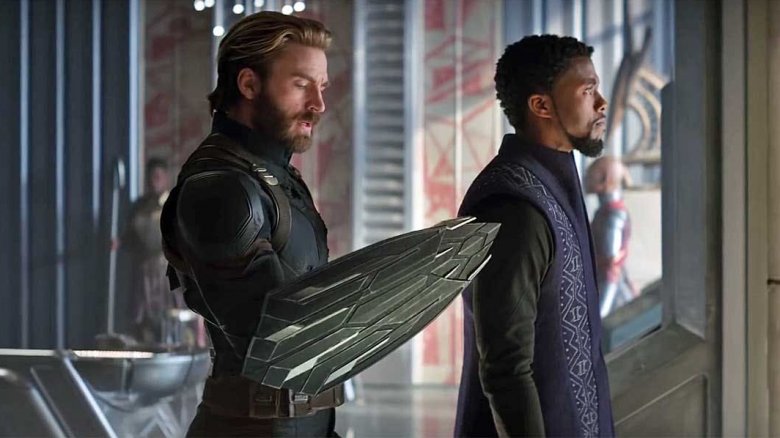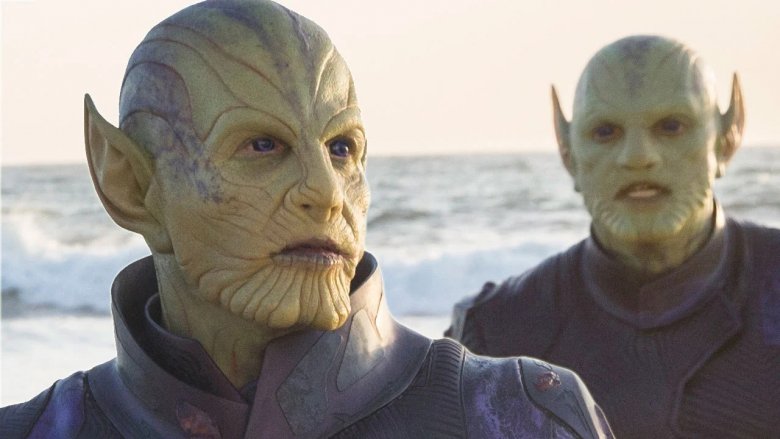Who Really Won In Captain America: Civil War?
A while back, an image surfaced that showed the two teams from Captain America: Civil War. It was titled "If you ever wondered which side REALLY won Captain America: Civil War," and it proceeded to acrimoniously point out that by the end of the Infinity Saga, Team Cap had done pretty well overall, while nearly all of Team Iron Man had died. The whole thing was good for a few laughs, but it didn't really prove any points.
However, it got us thinking, who did win Civil War? As one might guess, the question is a sticky, complicated one with points to be made on both sides. So we decided to take the entire Civil War scenario to task, breaking down the lead-up and fallout of the situation and then doing our best to analyze the aftermath in order to see who won the depressing affair. With that said, here's our take on who really won Captain America: Civil War—and just as a minor spoiler, it doesn't revolve around who's currently alive and who isn't.
The war was a long time a-brewin'
The first thing that needs to be taken into consideration is the fact that the barrel of gunpowder that is Captain America: Civil War didn't just explode into violence on its own. It's a deeply complex situation that developed over years of previous movies and storylines. While this includes many different factors and decisions by a ton of different characters, there are three specific events that can be closely tied to the third Captain America movie.
The first is the Battle of New York at the end of The Avengers. While it ends well for the good guys, the scenario was one of the first times a superhero event left a huge—and we mean huge—mess in its wake. The streets of the Big Apple were a smoldering pile of ruins by the time the last Chitauri soldiers were rounded up. The first scene in Spider-Man: Homecoming harkens back to the disaster, as it shows Adrian Toomes (aka Vulture) helping to clean up the mess.
From there, the stakes only get higher. Captain America: Winter Soldier ends with a majorly destructive battle involving three next-generation Helicarriers high in the skies above Washington D.C. After that, Avengers: Age of Ultron has a scene where Hulk and Iron Man recklessly smash through a city before ending with Ultron's catastrophic destruction of Sokovia. In other words, there was a whole lot of smashing going on before the big airport battle.
The Avengers might need some accountability
With so many horrifying events in the rearview mirror, Captain America: Civil War opens with the straw that breaks the camel's back. As the Avengers are stopping HYRDA agent Brock Rumlow (aka Crossbones) from stealing a chemical weapon in Nigeria, they inadvertently kill several relief workers from Wakanda, sparking a fresh wave of concern over the group's uncontrolled actions.
Not long afterward, Secretary of State Thaddeus Ross arrives at the Avengers Headquarters with the bombshell news that due to the events in Africa, the United Nations has decided that the Avengers can no longer operate as a private entity. Instead, they must willingly put themselves under governmental oversight in order to make sure there's some level of accountability for their actions. They're given the choice to submit themselves to this new system by signing the "Sokovia Accords" or else resign. The most surprising thing about the entire scenario? Tony Stark is in favor of signing the Accords.
Tony Stark makes a dramatic switch
Tony Stark is often seen as the "brains" of the Avengers, as his organizational skills, logistics, technology, and money are the lifeblood that allows the team to continue functioning. However, for all of the logical, calculated thought that Stark puts into the group, the fact that he would be in favor of the Sokovia Accords is still a bit of a shocker. Anyone familiar with his character's story arc up to that point knows that he's hardly one to just fall in line when ordered to do so.
Early in Iron Man II, the man is shown flouting the government as he refuses to give them access to his Iron Man technology. This unwillingness to play with others is on display again in Age of Ultron when Stark pushes to create a "suit of armor around the world" without the consent of the team. That decision also directly (albeit accidentally) leads to the creation of Ultron and all of the resulting damage the automaton leaves in his wake.
However, over time, Tony's decision-making abilities keep on leading to destructive events, and that begins gnawing at the billionaire's mind. In the early moments of Civil War, this comes to a head when Stark is confronted by a woman who lost her son in Sokovia. The jarring scene forces him to come to grips with the consequences of his actions, ultimately pushing him to support the Sokovia Accords.
Steve Rogers is scarred from the past
If Tony Stark's change of heart is understandable, the same thing can be said for Steve Rogers' response to the Accords, as well. He's naturally resistant to the idea of the Avengers being answerable to any higher authority, especially a government one. This doesn't just come from free-spirited independence or a desire to be rebellious, though. It comes from that old saying "the burned hand teaches best."
At the end of Winter Soldier, Rogers sees the all-mighty S.H.I.E.L.D. fall to pieces after it's revealed the entire organization has been thoroughly infiltrated by HYDRA. The unsettling situation certainly leaves an impression on the hero, and when he finds himself suddenly being pressured to submit to the control of yet another, even larger government organization, it's only natural that he would resist. After all, as Cap himself points out, agendas change, and if they submit, they lose the ability to make their own decisions or even choose what cause they're willing to fight for. And Steve Rogers never wants to find himself accidentally working for a bunch of fascists ever again.
Heart versus mind
If Tony Stark is the brains of the Avengers, there's little doubt who the heart is. Steve Rogers has always been the moral compass of the group. Usually, that's been to their advantage, as he's held them together, given them purpose, and helped them stay focused. However, in Civil War, Rogers' unwavering commitment to "follow his heart" ends up being the two-edged sword that pushes the group apart. As Stark calculates that the best move is for the Avengers to willingly put themselves in check, Rogers struggles with the feeling that the Accords are the wrong choice.
As he waffles over the decision, he attends Peggy Carter's funeral, where he's reminded that one of Agent Carter's mantras was to compromise where possible and where you can't, then it's "your duty to plant yourself like a tree, look them in the eye, and say, 'No, you move.'" With that reminder ringing in his ears, he learns not long afterward that Scarlet Witch is already being detained in the Avengers compound, at which point he decides that the right thing to do is to officially take a stand against the Accords and the potential danger they threaten.
The Avengers have a whole lot of emotions
If it were simply Rogers' and Stark's differing philosophies at stake, the whole thing probably could have been put to rest over a cup of coffee—as long as no one throws the grounds down the Avengers HQ sink again, of course. But there's one more major factor that's constantly at work throughout the film: emotions.
Stark becomes blinded by anger when he nearly loses Rhodey in the airport battle in Germany, and he freaks out again when he discovers that Bucky was the one who killed his parents. Rogers struggles as he processes the loss of Peggy Carter and tries to contain his brainwashed best friend. He also knows that he's hiding information about the fate of Stark's parents, which isn't his style in the least. The list of those "feeling the feels" doesn't stop there, either. Clint Baron only gets involved because he feels he owes Wanda Maximoff after her brother, Pietro, died to save him. T'Challa is furious at the loss of his father. Black Widow is so torn up that she switches sides halfway through. The presence of so many high-strung individuals only serves to increasingly complicate an already sticky situation.
So, with philosophies and emotions bringing the group to blows, the questions that still remains is, who won? While it's difficult to boil the conclusion down to a straight-forward "Team Iron Man" or "Team Cap" answer, there are definitely a few major takeaways from the conflict, especially as we take a look at the remainder of Phase Three.
Nobody won the civil war
The first and most obvious answer to the question of who won is no one. Civil wars are nearly always a net negative. They take healthy, unified groups of people and pit them against each other, undermining alliances and creating rifts and bitterness that can be difficult to patch up. In the case of Civil War, in particular, things like the airport battle and Stark and Cap's scuffle in Siberia ensure that the team is deeply divided when the dust settles. The effects go beyond that, though.
The entire plot of Infinity War would have likely been different if the group had been unified from the start. Instead, even when faced with a flying donut in the streets of New York City, Stark still hesitates to call Rogers out of hiding. Ultimately, he ends up flying off into space with Doctor Strange and Spider-Man, where he takes on Thanos with the Guardians of the Galaxy on Titan.
Back on Earth, meanwhile, Captain America is left with the splintered remains of the Avengers as they rally to protect Vision. This, of course, they fail to do. After Thanos crushes the team on Titan, he jaunts over to Wakanda, where he beats up the rest of the crew, plucks the Mind Stone out of Vision's head, and snaps his gauntleted fingers. While the events of Infinity War can't be exclusively attributed to those of Civil War, there's no doubt that one directly impacted the other.
Everybody won the civil war
If Civil War didn't play out like it did, Infinity War probably wouldn't have had such a snappy ending. Of course, if you follow the line of reasoning past Infinity War, another conclusion can be made—everyone won Civil War. While the path may have been a bit traumatic along the way, the storyline from Civil War to Infinity War goes on into Avengers: Endgame, where it is ultimately vindicated through one simple phrase: a 1 in 14,000,605 chance.
At the end of the day, the conflict in Captain America: Civil War is just one step on the road to finding that one in 14 million chance that Tony Stark would snap away Thanos and his entire army, and from that perspective, everyone is a winner. While the Avengers could've patched things up before they came to blows, ultimately that would've turned out to be one of the timelines where Thanos simply snapped half of them away anyway. It may seem like a cop-out answer, but it really does need to be acknowledged. The outcome of Civil War is a net win for the entire universe since it ultimately sets up Stark to save the day in Endgame.
The aftermath of the civil war
Another angle worth considering is how the fallout in Civil War impacted superheroes in the MCU as a whole. Were they ultimately reigned in, according to Stark's desire, or did they remain free, per Cap's wishes? While there were a few changes here and there, by and large, the answer to this one seems to be in favor of Team Cap.
The Sokovia Accords ultimately seems to have had little to no effect on how heroes operate. For instance, War Machine ultimately ignores the accords in Infinity War when he welcomes the exiled Avengers with open arms. T'Challa also gives asylum to the exiles at the end of Civil War, and he's even ready to resist any attempt by foreign powers to reclaim Bucky. As for Captain Marvel, she's pretty clearly going to do whatever the heck she wants to because she has much more on her mind than just Earth. Besides, who's going to try to put restrictions on her, anyway?
And don't forget that whole five-year gap in Endgame. Several of the Avengers ended up playing pretty big roles in leading the world through the aftermath of the Decimation, like Black Widow overseeing an ad hoc intergalactic police force during the time. And that doesn't even take into account the fact that they ultimately went all in to finally fix the situation. Their sacrifices likely killed the chance for the Sokovia Accords to have any teeth in the future.
Going forward in the wake of Captain America: Civil War
While it's easy to point to various behaviors since Civil War and say the greater effect of the conflict was virtually nil, there is one way that it did affect the tone of the MCU. Ever since Civil War, a case can be made that Marvel's storylines have begun to appreciate ancillary characters more than in the past.
The collateral effects of superheroes smashing and blasting their way through problems, as well as the struggles of non-supers throughout the MCU, seem to have been brought up more and more often. For example, a decent amount of time was spent on Skrulls and their distressing situation in Captain Marvel. In Endgame, the Ancient One pushed back against tampering with the Infinity Stones because it would cause an entire timeline to suffer. Even the travails of the survivors of Asgard and their new leader have become nearly as interesting a storyline to follow as Thor himself.
While it may be subtle, it's a significant shift from earlier in the franchise when destructive events like the Battle of New York were glossed over without a second thought, and Thor killing frost giants was showcased as more amusing than destructive. While choosing an official "winner" for Captain America: Civil War may be difficult, complex, and ultimately pointless, the impact it had on the MCU definitely can't be doubted at this point.
